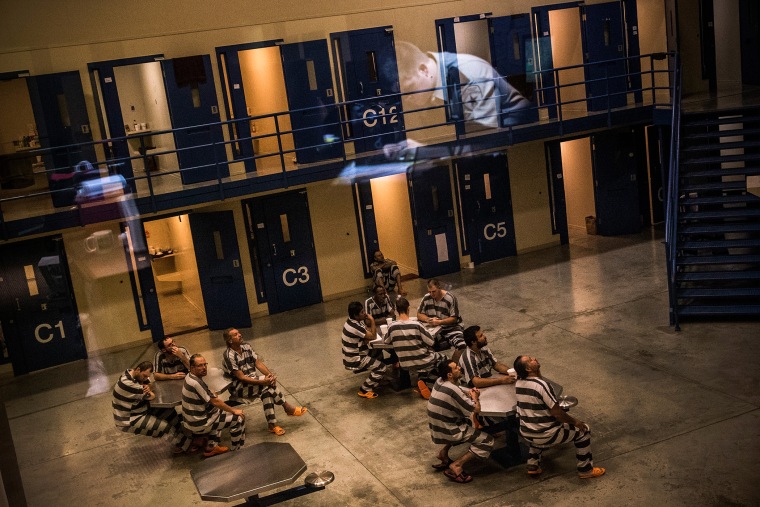Rand Paul and Chris Christie will occupy opposite ends of the GOP presidential field should they run in 2016, but the two of them are starting to sound similar notes when it comes to the war on drugs.
In recent weeks, Paul has campaigned for new laws restoring voting rights to convicted felons, many of whom he says pay too high a price for too long after committing nonviolent drug offenses. He plans to introduce a bill soon that he claims could allow as many as one million felons to vote again.
“It's the biggest voting rights issue of our day,” Paul said on NBC’s "Meet The Press" on Sunday. “We've gotten distracted by a lot of other things. We think there may be a million people who are being prevented from voting from having a previous felony conviction."
At the same time, Christie has embarked on a new push to change drug laws in New Jersey to emphasize treatment for addiction over punitive jail sentences. He has bluntly called the war on drugs a failure and delivered a speech on Friday to the socially conservative Faith and Freedom Coalition arguing reform should be part of their agenda.
“From the womb until natural death, we need to be there even for those who stumble and fall, to be there to lift them up,” Christie said. “To me that’s the true meaning, the complete meaning, of being pro-life.”
Republicans, led by Richard Nixon, used a hardline stance on drugs and crime as an effective cudgel in elections throughout the 1960s, 1970s and 1980s. But violent crime has plummeted nationally over the last two decades, giving politicians like Paul and Christie more room to explore reforms without setting off alarm bells among voters.
"...I think the face of the Republican party needs to be not about suppressing the vote, but about enhancing the vote."'
Paul has argued the emphasis on sentencing reform and voting rights could help the GOP win back minority voters, who have overwhelmingly backed Democratic candidates in recent elections. In particular, it might help repair the damage from a surge of GOP efforts to impose new restrictions on voting, which have sparked a major backlash by African Americans.
“If we're the party of family values and keeping families together, and the party that believes in redemption and second chances, we should be for letting people have the right to vote back, and I think the face of the Republican party needs to be not about suppressing the vote, but about enhancing the vote,” Paul said on Sunday.
Paul has identified Republicans’ attempts to pass voter ID laws as a major barrier to outreach, even though he has not condemned the policies themselves.
